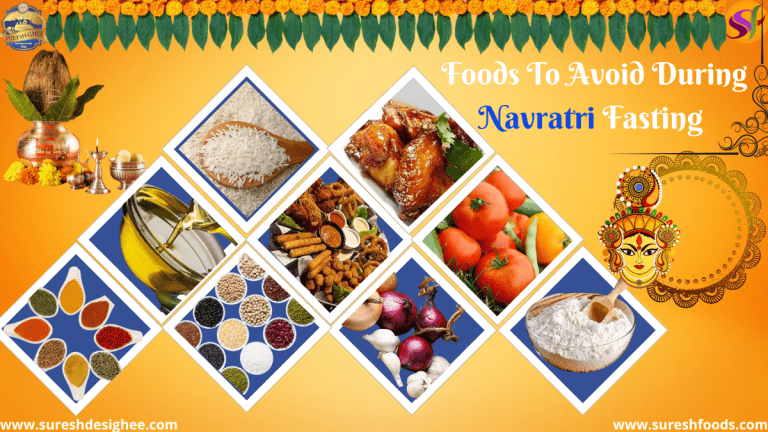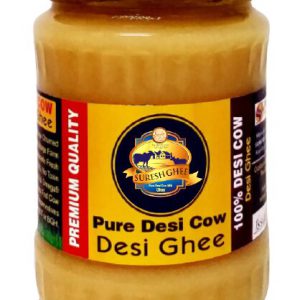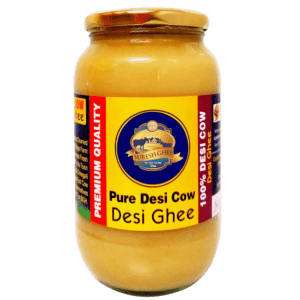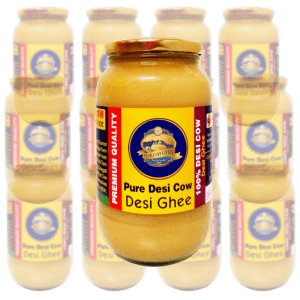Navratri is one of the most significant Hindu festivals which is honored with great pleasure and is very eminent across the country. The history of Navratri holds ultimate importance as it memorializes the triumph of good over evil and is honored to Goddess Durga and her nine avatars.
Among many customs of Navratri, vrat needs special guidance, as admirers do fast to welcome Goddess Durga with devotion and faith. Some devotees follow fast for all 9 days of Navratri, while some people do fasting for the first two or last two days of the festival.
However, there are some fasting lines one should follow to abstain from disobeying the rituals of Navratri. Only a few days are remaining for the Navratri festival, but arrangements are going with full joy. So if you want to keep fasting for nine days this Navratri, then first of all it is vital to know about the special rules of fasting in which food is also associated with devotion. What to consume and what not to intake during fasting. Will discuss this today.
Foods Not To Eat During Navratri Festival
If you’re on fast, below is some food advice on what you should not intake during Navratri fasting. Not only non-vegetarian but there are also many restrictions in consuming vegetarian items too. No matter how unreal it sounds, letting certain things from the vegetarian ingredients is necessary too.
Fasting is very healthy for your body system as it flushes out toxins from your body and goofing off gluten-enriched grains, promotes the digestive system. In such a case, it is best to ignore foods that sabotage the moto.
Some of the most known foods you should be avoiding during Navratri include
Avoid fried foods
Fried foods are not only harmful but can also influence your gut and heart fitness. Keep in mind basic things while fasting, avoid consumption of fried potato chips, deeply fried tikkis, vada, pakodas, and puris. All these dishes are full of oil and are not suggested if you want to do healthy fasting as it enhances acidity levels.
Read more: Grass-fed ghee in a keto diet
Non-vegetarian dishes
There is a kind of Rajasic food which you shouldn’t be ingesting. As per the rituals, foods that should be strictly non-consumable involve animal products like chicken, fish, mutton, eggs, and so on. Fasting devotees should not be allowed to even touch any non-vegetarian foods. Alcohol intake is strictly prohibited during fasting.
Onion and garlic
Although non-vegetarian foods are prohibited, onion and garlic are to be disregarded too. Even on ordinary days like Tuesday, Thursday and Saturday, people should neglect to prepare the dish with onion and garlic. As per the concept of Ayurveda, the properties of garlic and onion are Tamasic in nature. These things enhance the heat of the body. These two should be ignored during any seasonal transitions.
Spices
Consumption of daily spices such as coriander powder and turmeric is not permitted. However, you can add chili powder, sendha namak, black pepper powder, cumin powder to make your fasting food and fruit recipes. Besides that, you can use green cardamom during Navratri fasting.
Regular rice
Regular rice is definitely to be ignored during Navratri fasts. There is a particular kind of rice that is usable for fasting, called Samak ke Chawal. You should use this Samak ke Chawal as your daily food on fasting days.
Read more: How desi cow ghee is helpful in everyday problems
Table salts
You should prefer pure rock salt instead of regular table salt. Pure rock salt is also referred to as sendha namak.
Flours & grains
Any kind of foods made or formed from wheat flour, rice flour, besan, Semolina, Maida or refined Flour, Cornflour or Starch, Millets flour like ragi & Pearl millet, etc, are sternly banned to use in cooking recipes for fasting.
Legumes & pulses
Legumes and pulses should be ignored during this fasting period.
Vegetables
Some people prefer to use tomatoes while some do not. Choices of foods vary according to communities, but I suggest you avoid any souring ingredients in Vrat dishes such as lemon, kokum, tamarind, or pomegranate. The only sour agent that we can add is yogurt acting as a probiotic.
Oils
In the northern part of India, the most regularly preferred oils are either refined or mustard oil. Since mustard seeds are banned for fasting food. So you can’t use mustard oil for making food for fasts.
Foods You Can Eat During Navratri Fasting:
Nuts
Nuts can be consumable during fastings like almonds, pistachios, cashews, raisins, walnuts, pine nuts, also peanuts you can eat during this time. Nuts will fulfill the hunger pangs and keep you fuller for a prolonged time. You can intake nuts in combo with fruits also or You can include them in your sabudana vrat khichdi to raise its taste.
Flours
As regular flours like wheat are prohibited, but flours like amaranth, buckwheat, water chestnut can be consumable. These flours can be used to make rotis or pooris.
Spices
As referred above, the use of regular spices like coriander and turmeric powder is not permitted. However, you can add chili powder, sendha namak, black pepper powder, cumin powder to add fasting food preparations. Besides that, green cardamom is also added during Navratri.
Fruits
All types of fruits are allowed during fasting time. This will be useful for you as fruits are a good source of antioxidants. You can try a fruit salad that involves apples, bananas, watermelon, papaya, melon, pomegranate and have it as a snack or for breakfast.
Desi ghee
Use of Pure Desi Ghee is commonly recommended during these fasts. You can use it for sauteing, frying foods, topping for sweets, baking, and many more. According to Ayurveda, desi ghee has supreme importance in festivals like food made without ghee is meant to be incomplete for offering god.
Also, it is a healthier option than any other alternative. Also, our motto of fasting is detoxification fulfilled with the intake of desi ghee. As desi ghee has a high smoke point, it is the safest cooking medium loaded with amazing benefits.
Ghee is loaded with vitamins, antioxidants, and healthy fats. Eating fatty foods such as desi ghee can be useful to the body for infusing some vital vitamins and minerals. Cooking healthy meals and topping with ghee may encourage you to absorb more nutrients.
Ghee intake in your daily routine for enhancing immunity and stimulating the digestive tract. A healthy body and immunity both are important to keep yourself ready to stay active or ready for the celebration. To get the advantages of desi ghee for fasting recipes then have it in the proper amount. One should always go for quality products or prefer a 100% assured desi cow ghee prepared with the help of using the conventional Bilona process. You can directly buy it online from our store, visit our website: https://sureshdesighee.com/
Traditional Navratri Fasting Diet
A customary Navratri fasting diet is made in a way to pacify the digestive fire and may involve a combination of the following ingredients:
- Buckwheat (kuttu) roti, fasting rice (shamak rice), dosa made from fasting rice, some dishes made from sago (sabudana), water chestnut (singhara) flour, rajgira, yam (suran), colocasia (arbi), along with boiled sweet potatoes (shakarkand), etc.
- Clarified butter (ghee), milk, and buttermilk, all well-known for their cooling impacts on the body.
- Yogurt combined with bottle gourd (lauki) and pumpkin (kaddu).
- Lots of fluids, such as tender coconut water, juices, and vegetable soups, not only deliver a good amount of energy but also prevent dehydration and flushing out toxins released during fasting.
- Fruit salad made from papaya, pear, and apple.
When complying to the conventional Navratri diet, it is advisable to:
- Utilize rock salt rather than common salt for cooking.
- Adapt to healthy cooking techniques such as roasting, boiling, steaming, and grilling.
- Maintain a strictly vegetarian diet.
- Restrain from grains for the initial days.
- Resist fried and heavy foods.
- Exclude onion and garlic from the diet.
- Prevent overeating.
For those unable to fast, it is suggested to restrain from non-vegetarian food, alcohol, onion, garlic, and to utilize rock salt rather than common salt for cooking.
Conclusion:
The religious faith behind not consuming these foods has some scientific logic. Navratri is celebrated during the transition of the season. Intake of foods such as grains, onion, garlic, eggs, and meat, etc. should be ignored when our bodies are prone to have low immunity due to seasonal change. This food’s consumption absorbs negative energies and makes us prone to fall sick. So follow the right plan of fasting and enjoy the Navratri. Happy Navratri…







 WhatsApp us
WhatsApp us
Naveen m...